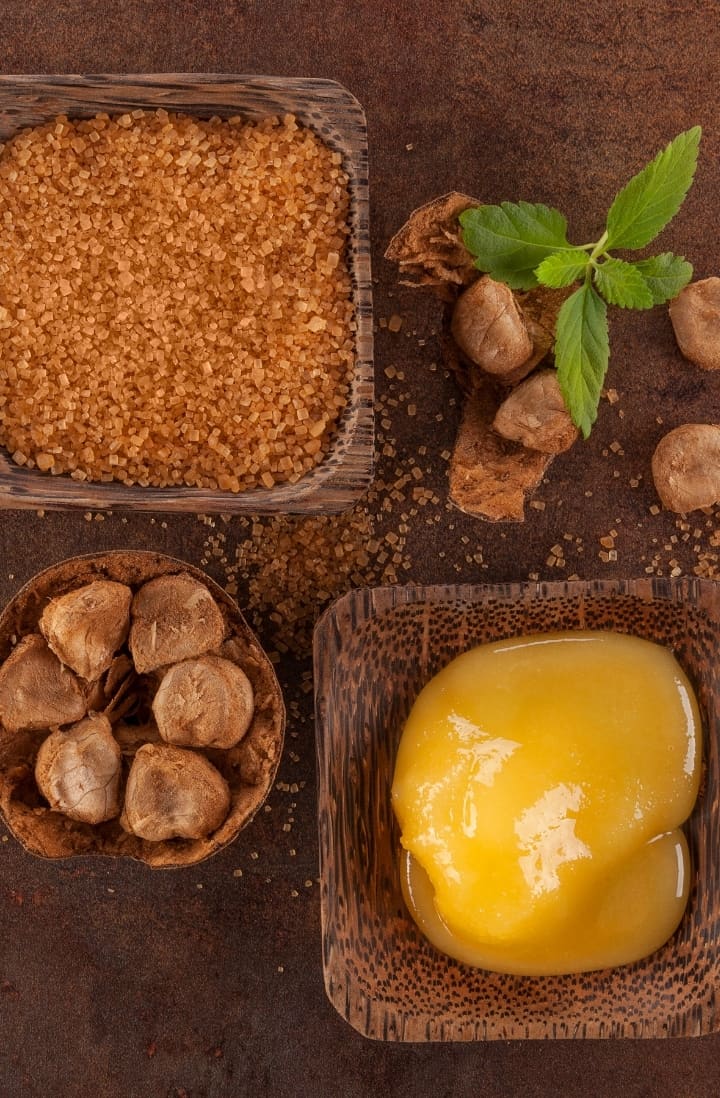Have you heard of monk fruit? It's a natural, low-calorie sweetener that's becoming increasingly popular in the United States. If you're someone who enjoys sweets but is trying to cut back on sugar or calories, monk fruit might be worth considering as a sugar substitute. In this blog post, we'll take a closer look at monk fruit, its benefits, and how you can use it in your cooking and baking.

What is Monk Fruit?
Monk fruit is a small, green fruit that grows in Southeast Asia. It's been used in traditional Chinese medicine for centuries, thanks to its anti-inflammatory and anti-diabetic properties. But in recent years, monk fruit has gained a new use: as a sweetener. Monk fruit extract is made by removing the seeds and skin, crushing the fruit, and then drying the pulp. The resulting powder is up to 250 times sweeter than sugar, but contains zero calories and zero carbohydrates.
Benefits of Monk Fruit
One of the main benefits of monk fruit is that it's a low-calorie sweetener. For people who are watching their weight or trying to control their blood sugar levels, this can be a major advantage. Monk fruit is also a good choice for people with diabetes, since it doesn't raise blood sugar levels like sugar does. It's also a good choice for people with food allergies or sensitivities, since it's free from common allergens like gluten, soy, and dairy.
Another potential benefit of monk fruit is its antioxidant properties. Antioxidants are molecules that help protect your cells from damage. Some research suggests that monk fruit extract may be particularly high in antioxidants, which could help fight inflammation and reduce the risk of chronic diseases like heart disease and cancer.
How to Use Monk Fruit
If you're interested in trying monk fruit as a sweetener, there are a few things to keep in mind. First, monk fruit is much sweeter than sugar, so you'll need to use less of it. Most recipes suggest using about half as much monk fruit powder as you would sugar. However, the exact amount you need will vary depending on your preferences and the recipe you're using.
Another thing to keep in mind is that monk fruit has a slightly different taste than sugar. Some people describe it as fruity or floral, while others find it to be slightly bitter. If you're not used to the taste of monk fruit, you may want to try it in a few different recipes to see how it works for you.
One advantage of monk fruit is that it's versatile and can be used in a variety of ways. You can use it to sweeten beverages like tea or coffee, or you can sprinkle it on top of fruit or yogurt for a sweet treat. Monk fruit is also a good choice for baking, and can be used in a variety of recipes like cakes, muffins, and cookies. Just be aware that since monk fruit doesn't contain any carbohydrates, it won't provide the same bulk or texture as sugar. You may need to experiment a bit to find the right balance of ingredients.
Final Thoughts
If you're looking for a natural, low-calorie sweetener with potential health benefits, monk fruit might be worth trying. Although more research is needed to fully understand the health benefits of monk fruit, it seems like a promising option for people who are trying to cut back on sugar or who have dietary restrictions. If you do decide to try monk fruit, be sure to use it in moderation and talk to your doctor if you have any health concerns. With a little experimentation, monk fruit can be a delicious and healthy addition to your diet.